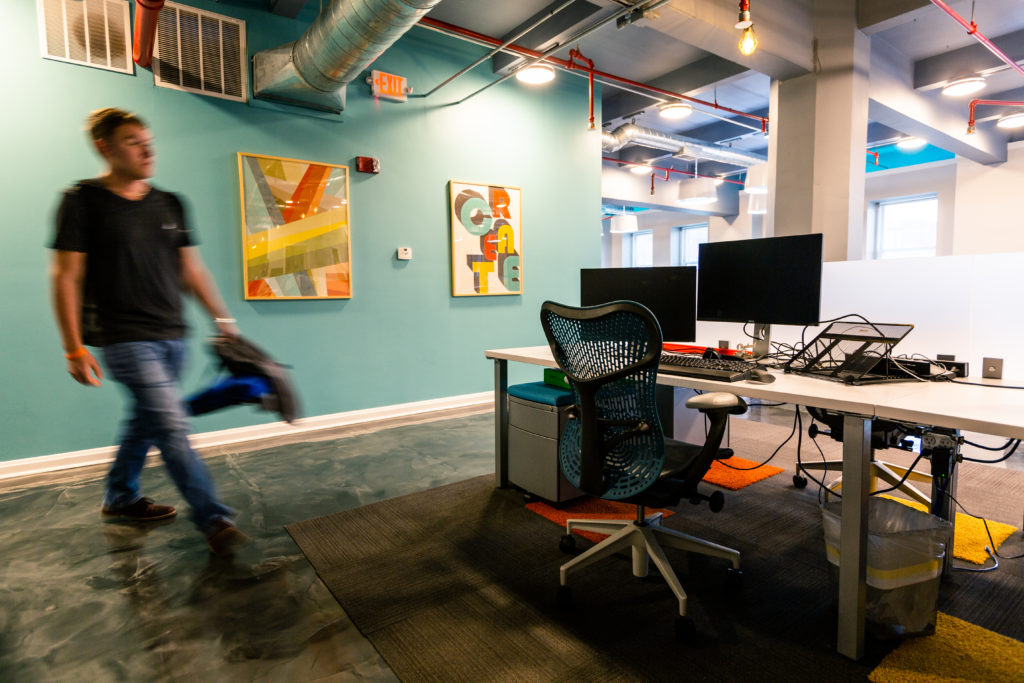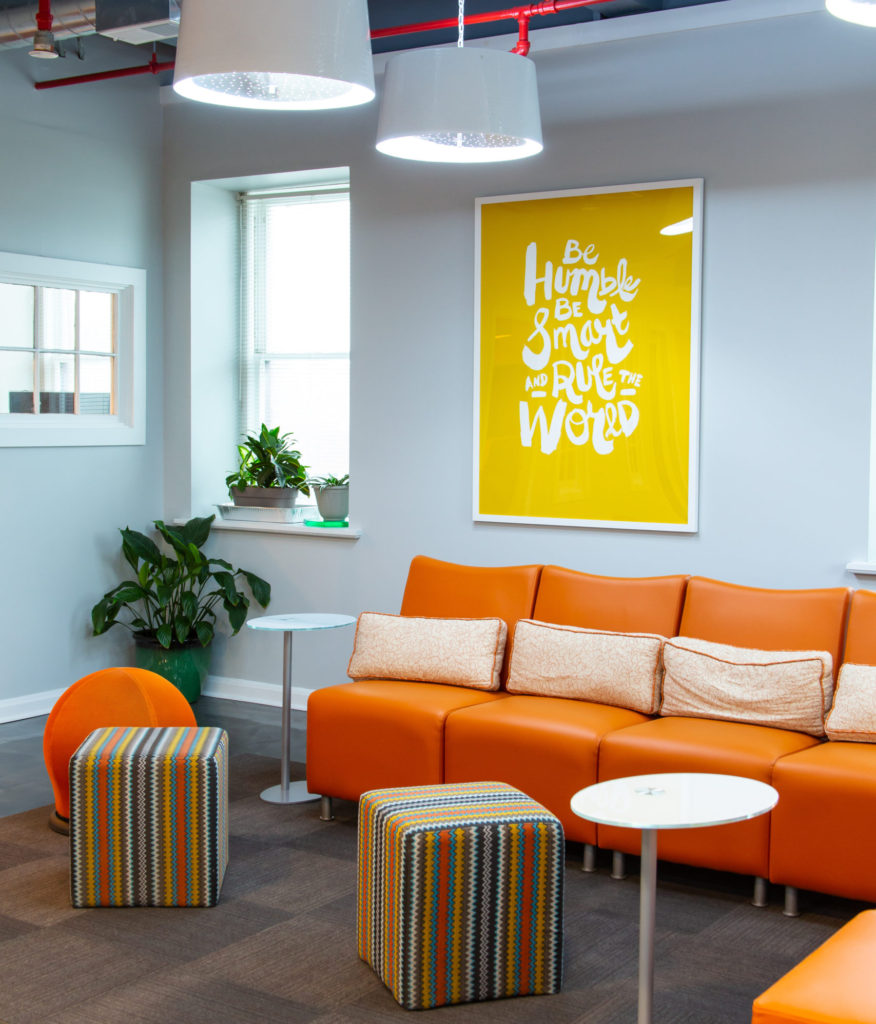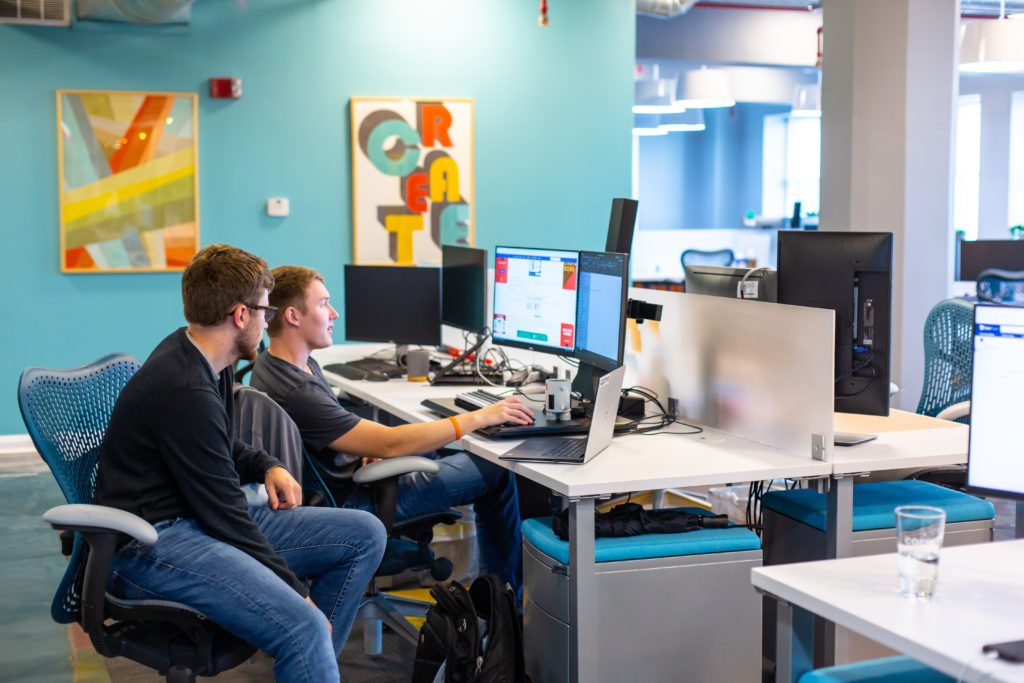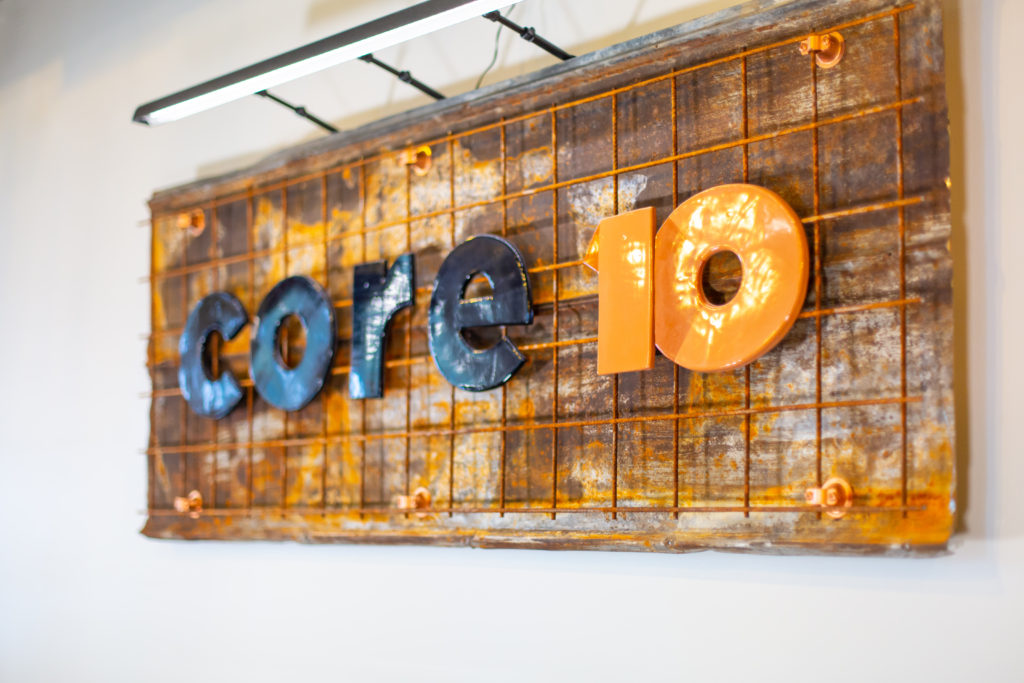Vantage Ventures Entrepreneur Spotlight Series: Female Leaders in Fintech
Vantage Ventures Entrepreneur Spotlight Series| Female Leaders in Fintech
We are extremely fortunate at Vantage Ventures to have a growing community of entrepreneurs who are passionate about making a real and tangible difference. By supporting teams of creative thinkers and problem-solvers — and leveraging the untapped talent and resources that exist in West Virginia — Vantage Ventures aims to build companies across data and IOT, infrastructure, life sciences, and security sectors. This initiative was born out of the John Chambers School of Business and Economics at West Virginia University and serves to launch high-impact, scalable businesses to tackle complex challenges. We are home to a fearless new generation of entrepreneurs.
Today, we highlight Vantage Entrepreneur Lee Farabaugh, Co-Founder, and President of Core10. Let’s hear from Lee on how her incredible work with Core10 is creating impact to improve future financial security and mobility through Fintech innovation.
The launch of a Fintech company is not easy. Can you share with us a brief background of Core10 and what led you to create it?
We started Core10 in 2016 to address a couple of problems we were seeing in the marketplace. One was the high cost of software development talent and the concentration of that talent in large metro areas. The other was the need for specialized developers who understood the nuances of a highly regulated industry, such as fintech, that was being revolutionized and challenged from all sides. We exist to unleash untapped growth potential for community FIS and fintechs. We do that by offering products and people to handle messy and hard-to-build core and digital banking integrations to enable affordable digital transformation.
Fintech has the opportunity to help the financially underserved. How is Core10 helping with this purpose and revitalizing communities?
We are dedicated to bringing and building opportunity in smaller communities throughout the United States. This has to do with jobs and income for employees, but also about how we can make the community better as a whole. We participate in civic events and give to local charities. We also believe strongly in the community banking system and the integral part community banks play in the local economy. They provide personal service and critical capital where it’s needed in a specific locality.

Can you tell us a bit about the people and culture in Core10’s office in Huntington, WV? What type of work does your team do for Core10’s clients from West Virginia?

I love going to our Huntington, WV office because there’s such a positive energy and vibe there. Our West Virginia team is spread out across the state, now that we are 100% remote, but a number of them still come into our office. I would characterize our team as smart, dedicated, extremely hard-working, and humble. We also take excellent care of each other.
From our West Virginia office and our West Virginia team’s home offices, we do software development, API integration, and SaaS implementation work for companies ranging from publicly traded large and established financial services companies to venture-backed startups. We also work with community financial institutions (banks and credit unions). We recently helped a partner build a commercial lending platform and then acquired that company, so now we develop our own products and help our customers develop theirs as well.

Science, Technology, Engineering, Art, Math (STEAM) education highlights the arts as one of its five fields and its inclusion is important. We were fascinated to learn that along with your fintech expertise, you also have an impressive Studio Art background from Wake Forest University and the Rhode Island School of Design. Can you chime in a bit on how you feel the “A” part of STEAM can help learners to develop the kind of creativity, ingenuity, communication, and performance skills that will assist them throughout their education and employment opportunities?
I’m pretty biased about the importance of art and creativity! I believe the ability to apply creative problem solving and come up with innovative design solutions is critical to business success today. My art and design background come in very handy in applying a “design thinking” mindset to solving even mundane problems.
It’s also important to be able to express your ideas through images and diagrams. I have found that my audience responds a lot better to an illustration than a bunch of bullet points. Putting ideas into graphical form also challenges you to think about them in a different way. I believe that applying graphical polish to deliverables makes a business appear larger, more successful, and more credible to its customers, prospects, and investors. Perception is everything.
Core10’s Hereshore® alternative to offshoring keeps tech jobs in the United States and supports local communities. Can you tell us a bit about this initiative?
We built Core10 in smaller towns and rural areas, because we knew those areas were home to lots of smart and talented people who wanted technology careers, but they likely grew up with the belief that they have to move away to achieve that. Our thinking was: let’s give people the opportunity to stay in the place they call home, build a career, and generate the kind of income that allows them to have a thriving lifestyle. Hence, Hereshore® was born, which is the concept of technology talent, living and working in smaller communities, providing the same level of excellence as those in big cities, but with more money in their pockets and cost savings that can be passed to the customer.
This past two years have been challenging times for everyone. What can you share with us about your learnings from launching a fintech strategy at this time?
Be flexible, listen to your team, invest in what matters, and keep your promises. During this time, we went completely remote, and we essentially remade our company in terms of core values, purpose, culture, and employee engagement. These are tough and you have to be dedicated to them day in and day out, and not get bored and move on to the next new shiny thing. Our team believes in us as leaders because we are entrepreneurial, yet steady, and we hold each other and them accountable. This holds true for any industry, not just fintech.
Are there trends in fintech that you are particularly interested in that you can share? How are these trends impacting how you are building and then delivering Core10’s products and services?
There are tons of interesting things happening in fintech today. I’m really intrigued with how financial tools and technology are becoming embedded in our everyday lives. I’m seeing a lot of compelling business models around providing people with the financial data they need “in the moment” to make better decisions. An example is showing a business owner their account balances while they are making critical purchasing decisions.
There are also challenger and neo-banks (and some right here in West Virginia) who are bringing specific demographic or affinity groups to the table around a common cause or interest. These banks can contribute deposit account revenue to existing banks, so they’re of interest to community banks. It is imperative that the community banks innovate and digitize, or they risk losing so much market share that they are valuable only for their charter. It’s interesting to see how community banking is being reinvented for the post-Covid age.
Female fintech founders have excelled during the global pandemic, in part because of their ability to handle uncertainty, collaborate with others in the ecosystem, and home in on the needs of the customer. Peer-to-peer networks, where female founders exchange ideas, explore business opportunities, and importantly, motivate and inspire one another, can speed the rate of change. What outside resources (meetups, local entrepreneur events and accelerators) do you recommend to female entrepreneurs that have helped you grow?
I’m a member of Entrepreneurs Organization (our Nashville, TN chapter is the largest in the US), where I participate in a monthly forum with 8 other business owners to share ideas and solve problems together. Two other members of my forum are women.
Core10’s Accrue commercial lending and digital account opening product is part of the current cohort of the ICBA (Independent Community Bankers Associate) ThinkTECH Accelerator. The founders are men and women. It’s a very supportive group and there are other female founders in the cohort. I also recommend finding a “village” of other like-minded women — two of my best friends are working mothers that I met through our pre-school. Even though our kids are older now, we have so much in common that we’ve stayed very tight.
One of my favorite organizations for young people in West Virginia is GenerationWV, with local chapters and a solid set of programming around living, working, and serving in West Virginia communities.
What advice do you have for women entrepreneurs or even young female engineering students who would like to be a Fintech entrepreneur?
Learn everything you can, be a humble and hard worker (that will get you further than almost anything else), check your ego at the door (more often than not, it’s not about you), find great mentors (male or female) and let them know how much their guidance means to you. Believe in yourself even when it’s hard to do, because we all have biases – women have them against each other without even realizing it – but it doesn’t do any good to get hung up on that stuff. Sign up for the hard jobs and do them with grace and professionalism. Don’t let anyone treat you poorly. And take an accounting course…that’s never a bad idea!
Thank you to Lee for taking the time to chat with us! Learn more about Core10 https://core10.io/.

